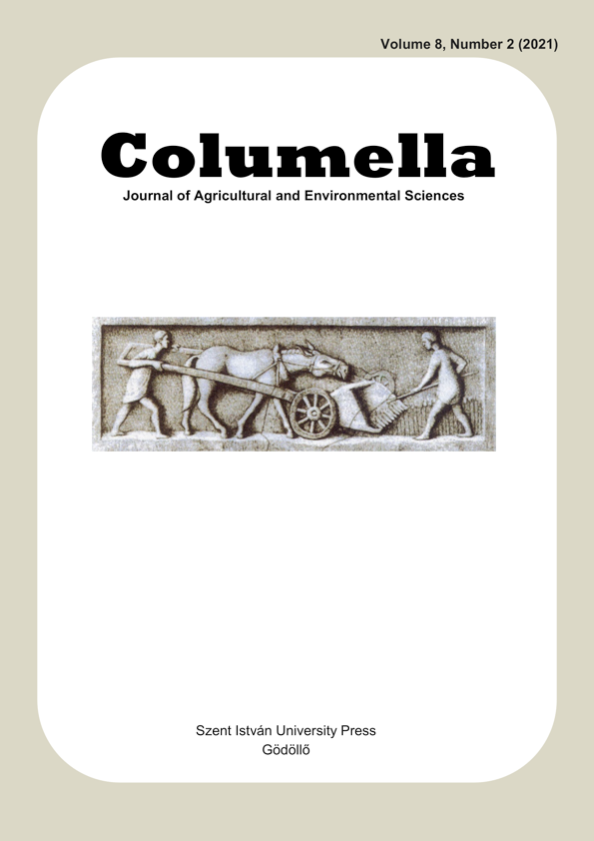Microbiological activities in the composting process – A review
DOI:
https://doi.org/10.18380/SZIE.COLUM.2021.8.2.41Keywords:
Microorganisms, compost, biodegradable material, microbiological degradationAbstract
Composting is a technological process of waste management that is, with the help of microbiological activities in aerobic conditions, organic material is decomposed and stabilized into a biodegradable mixture and transformed into compost. This process of decomposition of organic matter has recently attracted a lot of attention due to its environmentally friendly methods in which additional environmental pollution is avoided. The composting process follows four phases (first mesophilic phase, thermophilic phase, second mesophilic phase, and maturation phase). The most important factors influencing the decomposition success are C/N ratio, humidity, temperature, substrate particle size, pH, oxygen content and microorganisms. Microorganisms such as bacteria, fungi, and actinomycetes act as chemical decomposers in the process of decomposition of organic matter into carbon dioxide, heat, water, hummus, and a relatively stable final organic product - compost. In the process of composting, microorganisms decompose the complex molecules of lignin, cellulose, and hemicellulose. The presence of different types of microorganisms is influenced by the composition of composite mixtures and changes in temperature through the phases of the composting process. At the beginning of compression, the microbial activity increases significantly, which causes a temperature rise. The initial dominance of bacteria is replaced by fungi that are most active in the process of compost maturation.This scientific paper aims to present an overview of the composting process and the role of beneficial microorganisms in the process of decomposition of organic matter of the compost mixture.
Downloads
Published
Issue
Section
License
Copyright (c) 2021 Franjo Nemet, Katarina Perić, Zdenko Lončarić

This work is licensed under a Creative Commons Attribution-NonCommercial-NoDerivatives 4.0 International License.






